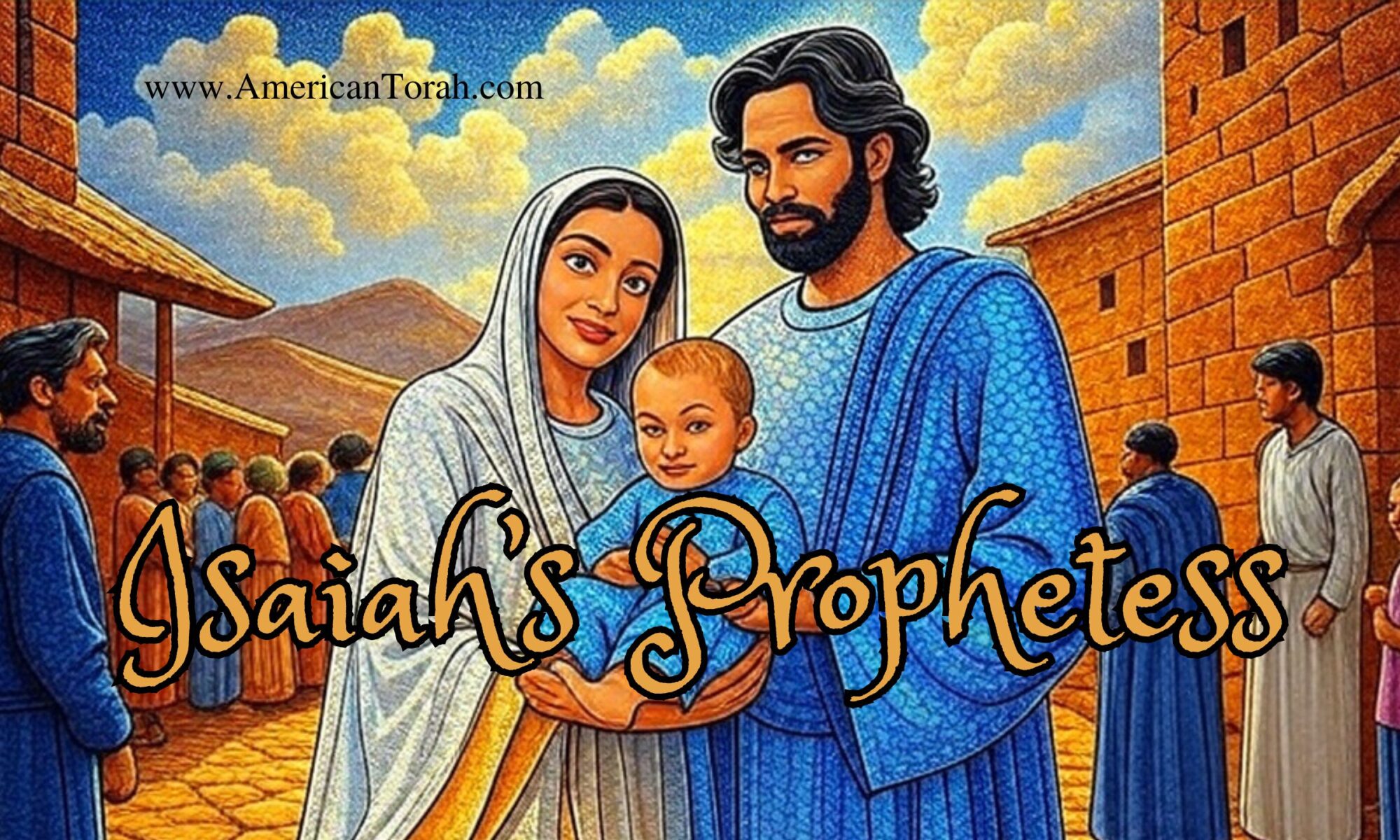And I went to the prophetess, and she conceived and bore a son. Then the LORD said to me, “Call his name Maher-shalal-hash-baz…”
Isaiah 8:3 ESV
in this verse, Isaiah calls his wife “prophetess” (נביאה, naviyah). There is some question about what this means, because we have no record of her prophesying. That’s not too unusual–the Bible mentions numerous prophets whose prophecies have not survived–but many of those were false prophets, which probably isn’t the case here.
In this case, it seems that this “prophetess” could mean one of three things:
- Isaiah’s wife was fully a prophetess in her own right, even though her prophecies are not recorded in Scripture.
- She prophesied only in the sense that she bore children whose names were prophetic. In other words, she served as a prophet’s assistant.
- Prophetess was an idiomatic honorific applied to the wife of a prophet, much as a pastor’s wife (in some churches) might be called the Mrs. Reverend So-and-so, but she didn’t give any prophecies of her own.
While I can’t rule out options 2 and 3, I can’t find any real support for them either. I am admittedly not an expert in Ancient Near East cultures, but in my brief searches, I couldn’t find any examples of the wife or female assistant of a prophet being called a prophetess Almost all ANE cultures had prophets and prophetesses (e.g. Egypt, Greece, and Sumer), but they weren’t called that unless they actually engaged in some kind of prophetic activity.
However, option 1 has significant support from the above sources and from the Bible itself.
The Hebrew word naviyah is used 6 times in the Masoretic Hebrew text of the Old Testament, and each of the other 5 times refers to a woman who prophesied.
- Then Miriam the prophetess, the sister of Aaron, took a tambourine in her hand, and all the women went out after her with tambourines and dancing.
Exodus 15:20 ESV - Now Deborah, a prophetess, the wife of Lappidoth, was judging Israel at that time.
Judges 4:4 ESV - So Hilkiah the priest, and Ahikam, and Achbor, and Shaphan, and Asaiah went to Huldah the prophetess, the wife of Shallum the son of Tikvah, son of Harhas, keeper of the wardrobe (now she lived in Jerusalem in the Second Quarter), and they talked with her.
2 Kings 22:14 ESV - The parallel text in 2 Chronicles 34:22.
- Remember Tobiah and Sanballat, O my God, according to these things that they did, and also the prophetess Noadiah and the rest of the prophets who wanted to make me afraid.
Nehemiah 6:14 ESV
There is also the example of the four daughters of Philip the Evangelist in Acts 21. None of them were even married.
On the next day we departed and came to Caesarea, and we entered the house of Philip the evangelist, who was one of the seven, and stayed with him. He had four unmarried daughters, who prophesied.
Acts 21:8-9 ESV
The most likely conclusion is that Isaiah’s wife was an actual prophetess, a woman to whom God gave messages to be relayed to other people. This doesn’t mean that she was a priestess, a pastor, or held any other position with any inherent authority. A prophet’s authority is not in him (or her) self, but in the message he conveys.
Everything that Yeshua (aka Jesus) & the Apostles taught
Come with me as I draw out the connections that are so often missed |


